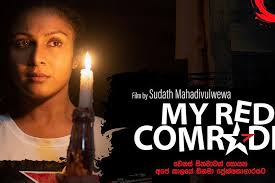The definition found in the internet for 'Man of Culture'
refers to someone who appreciates things considered refined, classic, or niche,
especially in areas like art, music, movies, or anime. It's about shared
enjoyment and understanding, not about trying to impress someone.
During one of our regular conversations on such subjects’ years
ago, eminent filmmaker Dharmasena Pathiraja spoke about the 'man of culture' in
the middle-class society of Colombo in the 60s & 70’s. He went on to say
that they professed a deep appreciation of theatre and drama staged at Lional
Wendt, enjoyed dining out and often had a
painting by George Keyt displayed in their lounge room. Pathi claimed that unlike in socialist societies country’s
common man is deprived of such 'luxuries' enjoyed by those considered
to be the privileged. Interestingly though he pointed out that the said privileged group is rapidly being marginalised within the free economy that emerged in the late 80's making way for a
Nouveau riche class who lacked said social values.
A lot is being said about the values of a 'society of
culture' in recent times in Sri Lankan political arena, particularly among
those campaigning to establish one when they come to power. 'Sanskruthika Minisa' (Man of Culture) has
become a slogan on those platforms.
Ironically a present-day filmmaker brings this very topic for
wider discussion cinematically in his most recent work called 'My Red Comrade'
Sudath Mahadiwulwewa's effort aims to arouse awareness for the need to awaken the leftist movements from the traditional dreams that they are deeply caught up in and to make them focus on addressing contemporary issues. He does this brilliantly through a somewhat weird encounter between two strange characters, an ageing activist and a young woman who sneaks into his small shanty seeking refuge in the middle of a stormy night. His portrayal of the two characters juxtaposed in the tiny shanty, playing extraordinarily with light and sound, is fascinating. Throughout the equally weird relationship that develops between the two, the filmmaker unfolds the story of the tragic and failed past of the country's traditional leftist movements and those who sacrificed their lives for the same.
In the end the spectator is given the nudge where the girl, an
activist herself, lights up a candle into the darkness that her
revolutionist host, whom she calls My Red Comrade, who operates under cover and
those many others out there fighting for a common cause are drenched in.
Having fearlessly and cleverly confronted the
criminals set off by the state authorities to hunt her rescuer (from a
similar terrifying situation she underwent earlier in the night), she says to
the audience, 'I have done my bit and it's your turn now!'


No comments:
Post a Comment